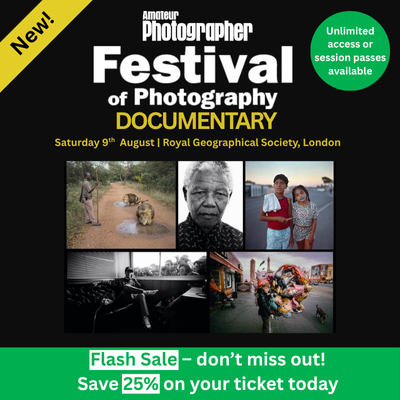West Mercia Police also rejected a Freedom of Information (FOI) request that sought to establish how many people have been stopped, arrested or charged while taking photos over the past five years.
Amateur Photographer (AP) magazine had made the requests to determine the number of unwarranted stops in the force’s territory, which covers Shropshire, Herefordshire and Worcestershire.
Last year, West Mercia Police paid £10,000 in compensation to amateur photographer Anthony Finnegan who was wrongly arrested after taking a picture of a bank in Shrewsbury in 2009.
More recently, it emerged that a man arrested in August 2012 on suspicion of taking indecent images of children at a Shrewsbury bus station has faced a year-long police investigation and has been repeatedly rebailed.
Police won’t say why the case is taking so long, telling AP that releasing such data following an earlier FOI request would breach data protection laws.
Responding to a separate FOI request, the force says that a search of its computer database, using the keyword ‘photograph’, shows there were 21,878 incidents between 1 January 2008-31 December 2012.
‘Not readily retrievable’
However, police say they would need to conduct a manual review of each case to determine if any involved people being stopped or arrested over photography in public.
The force explained that this is because the required data is ‘not available in a readily retrievable format’ from its Operational Information System.
It rejected the FOI request lodged by AP on the basis that the cost of retrieving the details would exceed the ‘appropriate level’ set out under freedom of information regulations.
The force told AP: ‘Should it take a minimum of two minutes to review each record this would equate to in excess of 729 hours work.’
Compensation payouts
Neither would West Mercia Police disclose how much it has paid in compensation to people who have been wrongly stopped while taking pictures in a public place over the five-year period.
Though it revealed that there have been 152 cases of ‘unlawful/wrongful’ arrest – resulting in 64 compensation payments – the force estimates it would take more than 50 hours to retrieve and review each case to establish whether photography played a part in the incident.
The force said it was aware of the police payout involving amateur photographer Anthony Finnegan – a case that was reported in the media last year.
Finnegan had been wrongly arrested after taking a photo of a branch of NatWest.
He said that an officer and a PCSO demanded to know why he had been taking ‘discreet photographs’ of the building’s doorway.
Since the Government changed anti-terror laws three years ago, there have been relatively few reports of police stops on photography enthusiasts nationwide.
Earlier this summer, however, two photography students criticised Hertfordshire Police after officers said they had not used any formal powers when they stopped and quizzed them over photos deemed ‘out of the ordinary’.







